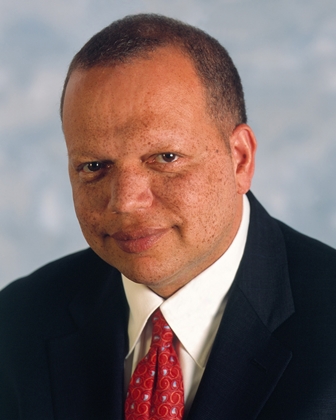May 27, 2014
Private: Race Matters: Theodore M. Shaw Examines Schuette v. Coalition to Defend Affirmative Action

While May 17 marked the 60th anniversary of the Supreme Court’s landmark decision in Brown v. Board of Education, inequality along racial lines remains an important concern in today’s classrooms. In recent years, courts have addressed the egregious effects of education inequality within American higher education by weighing the necessity of race sensitive admission policies. According to a study conducted by The New York Times, in states that have banned race-cautious admissions, “prominent public universities have tended to enroll fewer black and Hispanic freshmen.” With these realities in hand, many have turned their focus to Supreme Court decisions like Schuette v. Coalition to Defend Affirmative Action to measure America’s progress in combating these inequalities in today’s college classrooms.
Schuette v. Coalition to Defend Affirmative Action challenged an amendment to the Michigan constitution banning race sensitive admissions policies in public universities and addressed whether voters can choose to prohibit state universities from considering race in the admissions process. Justice Anthony Kennedy wrote for the plurality, upholding Michigan’s ban and overturning the U.S. Court of Appeals for the Sixth Circuit’s ruling that the voting policy violated the Equal Protection Clause.
ACS held a media briefing to discuss the court’s decision featuring Theodore M. Shaw, a Professor of Professional Practice at Columbia Law School and a former ACS Board Member who will soon be the first Julius Chambers Distinguished Professor of Law at the University of North Carolina School of Law. Shaw led the discussion by assessing the case’s importance within the broader scope of education litigation, highlighting cases such as Reitman v. Mulkey and Washington v. Seattle School District No. 1 where the courts established notable boundaries for race-sensitive laws. “The line of cases that are at the core of our discourse,” Shaw stated, “deal with whether or not voters can pass legislation that makes it more difficult for members of minority groups to protect their interests.” In addition to his analysis, Shaw highlighted Justice Sonia Sotomayor’s 58 page dissent in Schuette. An outspoken benefactor of Affirmative Action, Justice Sotomayor has consistently advocated for race sensitive admission policies. Summarizing her dissent from the bench, Justice Sotomayor asserted that the court’s decision infringed on the rights of racial minorities, and that the “court’s refusal to accept the stark reality that race matters is regrettable.” Shaw focused on the Justice’s eloquent commentary on racial inequalities and her response to Chief Justice Robert’s famous phrase from his decision in Parents Involved in Community Schools v. Seattle School District No.1: “[t]he way to stop discrimination on the basis of race is to stop discriminating on the basis of race.”
“In my colleagues' view,” Justice Sotomayor explained, “examining the racial impact of legislation only perpetuates racial discrimination.” However, “the way to stop discrimination on the basis of race is to speak openly and candidly on the subject of race, and to apply the Constitution with eyes open to the unfortunate effects of centuries of racial discrimination.” Justice Sotomayor went on to describe why “race matters in America” and the realities facing the very minorities who the Michigan law would discriminate against. “Race matters to a young woman’s sense of self when she states her hometown, and then is pressed, ‘No, where are you really from?’ Race matters because of the slights, the snickers, the silent judgments that reinforce that most crippling of thoughts: ‘I do not belong here.’”
Powerful and deeply personal, Shaw argued that Sotomayor’s “extraordinary” dissent not only countered the ruling by the court’s conservative faction on race and higher education, but it reflected the “debate between the anti-diversity, anti-Affirmative Action folks who say that diversity efforts do the real harm and others who believe racial inequality [exists] and still needs to be addressed in this country.” Although Shaw posits that the case is unlikely “to be a hot topic issue in the coming elections” he trusts that it will play an important role in continuing the debate over race-sensitive admissions policies.
Hear audio of the media briefing here.




